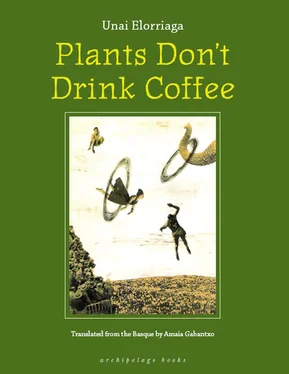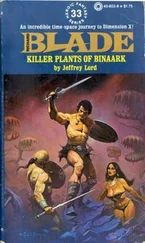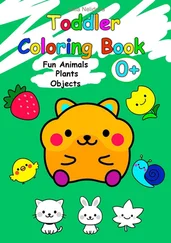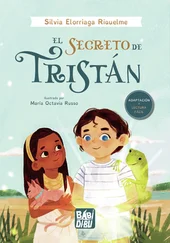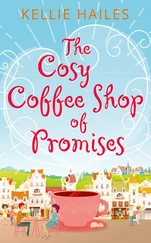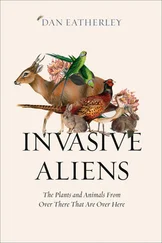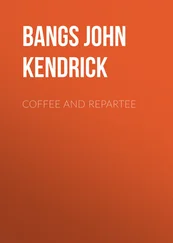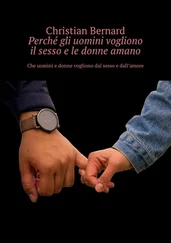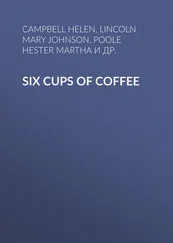My cousin Mateo came home with Ball today. Mateo and Ball brought four sacks up. My cousin Mateo has a big gang of friends. Ball is one of them, a fat one. Others are thin. There’s one who’s very tall, but he doesn’t play soccer. Ball does. Ball is very good at soccer, but he doesn’t move. Ball stands still in one place, and never runs, and hardly ever moves, but he plays well, especially his passes. That’s why they call him Ball. Also because he’s fat. The other day he scored a goal that was incredible.
My cousin Mateo has 107 books in his room. And a pair of binoculars, really fat ones. And a photograph of an old cyclist. But the photograph isn’t very good because it doesn’t have any colors. Only gray and black and white.
Every time Mateo went to the library to steal books he brought some cardboard in his pocket. Something bright; red cardboard, or neon green, or yellow. And Mateo would leave the cardboard on the shelf he’d taken the book from, and write: “I’ve stolen this book.” Then he’d write the author’s name, the title of the book, the publisher, the year it was published and, if he had time, the ISBN too.
On Monday afternoon Mateo stole a photography book from the library. He stole photography books mostly. And he wrote: “I’ve stolen this book” on a piece of red cardboard. Then he copied the book’s bibliographical note: Berson, Robert, Modern Photographs of the 20th Century (1920–30) , Brusque, Paris, 1932. It was a big book, it weighed almost a kilo.
And Mateo used his usual method to steal the book: he hid it under his sweater and tucked it into his pants, like a t-shirt. That way he didn’t have to hold it with his hands, because the pants themselves held it, the pants and his elastic belt. That way Mateo could move his hands around naturally. Like when he spoke with the librarian, for example.
Once the photography book was well hidden he took another book from the shelves — a novel, as a cover. Then he went to the librarian’s cubicle to sign out the novel. The librarian started filling out his library card.
There was a man talking to the librarian. He had a cane, and he talked more with his cane than with his mouth. And his hands were green, and it looked like they never got wet, and even if they did, it looked like they would dry very quickly.
The man noticed Mateo. He became very interested in Mateo all of a sudden. He told him:
“Do you come here often, señe ?”
“Well,” said Mateo. “In winter, yes.”
The man continued:
“Do you know how many years I’ve spent there?” he pointed at the librarian’s cubicle. “Forty-one years. Forty-one years as a librarian there. And do you know how long it’s been since I retired? Twenty-two years ago I retired. That’s a life and a half, son.”
Mateo could feel the book under his sweater starting to slide down; his pants weren’t keeping it in place as they should. He started sweating, because the librarian was looking at him and might notice the book any minute. It was a big book, it weighed almost a kilo.
“Are you from around here, señe ? Are you from town?” the man said with his cane.
“Yes.”
“And your parents? Are they from town?”
“Yes.”
“And where does your family live then, señe ?”
“We live in Maloena.”
“Maloena. . whose child are you? Simon’s?”
“No, Abel’s.”
“Of course. Abel’s. And Martina’s.”
Mateo could feel the pressure in his underpants more and more; the book had slid right down. But that wasn’t the worst of it: the worst was that three of the buttons in his fly were undone, and a corner of the book was starting to peek out from there. The book weighed almost a kilo, and that corner at least one hundred and fifty grams. Mateo made a huge effort to hide the book from the librarian. His shoulder blades started sweating, while the old man’s hands remained completely dry.
The ancient librarian continued talking about Mateo’s family:
“Maloena. Of course. Martina’s son. And you’re Rosa’s nephew. You must have a sister called Iñes. Your grandmother was Iñes. You’re Martina’s son, of course. I used to be great friends with your grandfather. Julian. Did you meet your aitite Julian, señe ? No? Of course, Julian died before I retired, how could you have met your aitite Julian then, impossible for you to have met him. . Julian made everything in our house; he made the tables, the beds, the doors. . And we were very lucky, because later, when he became famous, it was more difficult. It was difficult to get your aitite Julian to take an order. He always had big commissions going once he became famous, and it was impossible to get him to take a small order. Sometimes he did. Sometimes he took a small order: he would make us three chairs maybe. Very elegant chairs too. He would make something small for us every now and then because we were from town, because we were friends, but generally he couldn’t. Generally he was very busy, after he became famous; he was busy with the big commissions. He got big commissions from over there, in Eldas, and from the houses over there, in Sarri. There’s a lot of money there, you know, in Eldas and Sarri; especially in Sarri. There’s money to burn in Sarri. And big houses too. And a two-hundred-square-meter house needs to be furnished. That’s where your aitite got his big commissions. He used to furnish houses in Sarri nonstop. And an order for one of those houses could be something like: four tables, five wardrobes and seven beds. They used to order many beds, the Sarri folks did, because they wouldn’t just have a few children, because, you know, where there’s money there are children, and they would order seven beds or even fourteen. We were very lucky with your aitite : he made all the furniture in our house. He did it before he became famous, of course, because after that he made beds most of the time. And if the beds were for children he would engrave figures on them, of horses maybe, or cats, and if it was a bed for a married couple he would engrave leaves, or maybe not. And he made all the beds different, and if you asked him to make you three chairs he would make them all the same, but there was always something that made them different, on a leg or a corner, there was always something different on each chair. That’s what your aitite Julian was like with wood, señe .”
Mateo was in a very tight spot: the photography book was sinking lower and lower, and it had started to shift leftward. And to dig hard into his left leg. It was getting painful. And embarrassing. The librarian was looking at them, listening attentively to what the old man said. And if the book kept sliding down, the librarian would notice it. Soon. Mateo wanted to get out of the library as quickly as possible, but he couldn’t tell the old man to be quiet, to tell him the story next time. Besides, he had never heard all that stuff about Aitite Julian. And the truth was that he kind of wanted to know more. The old man was very happy to have an audience:
“He was a great artist, Julian. With wood. Phenomenal. They said. . people used to say then. . but you know that, don’t you? They said your aitite Julian was the best carpenter in Europe. That’s why the Sarri folks ordered so many things. People started coming from all over the province to place orders, and once an Englishman came, and afterward other Englishmen came because he told them. And Germans. Everybody here said that Julian Maldas was the best in Europe. That’s why they had that competition, to find out who the best carpenter in Europe really was. It was in 1927, the competition. I’m sure it was 1927 because the sea knocked down a chunk of mountain that year. The sea ate a chunk of mountain. There was a huge storm in ’27, in August, and the sea ate a chunk of mountain right there on the beach. The competition was in ’27 and the judges came from all over the world and one of them was incredibly black and incredibly tall. But he wasn’t a black African, he was from Canada, and they said he was the best carpenter in the Americas. That’s why he was one of the judges. . oh yes, your second surname must be Maldas. Your mother’s a Maldas, isn’t she? Martina Maldas. Isn’t that so, señe ?”
Читать дальше
